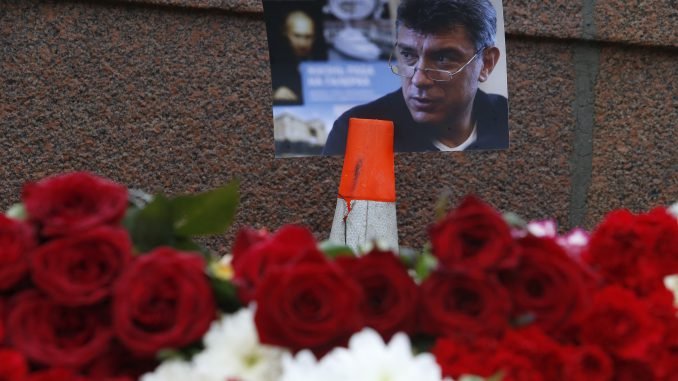
“Murder of Boris Nemtsov shows that Russia slides down to darkness of terror against its own people,” the Lithuanian president tweeted on Friday night.
Nemtsov, 55, was shot dead in central Moscow earlier in the day, a spokesman for the Russian Ministry of Internal Affairs confirmed.
Based on initial information, a white vehicle approached him, four shots were fired and the car fled the scene.
Nemtsov was born on 9 October 1959 in Sochi. He studied radio-physics at the State University of Gorky in 1976–81.
He served as governor of the region of Nizhny Novgorod in 1991-1997, was a member of the Russian State Duma in 1990-1993 and a member of the Russian Federation Council in 1994-1997. In 1997, he was appointed first deputy prime minister under Prime Minister Viktor Chenomyrdin, and simultaneously served as minister of fuel and energy. Nemtsov served as a deputy prime minister in the following government of Sergey Kiriyenko in April-August 1998.
In 2000, Nemtsov joined Russian opposition and was a harsh critic of Russian President Vladimir Putin. He organized mass anti-government protests in 2011-2012.
The last time he was in Lithuania was in the middle of January when he attended the Snow Meeting and Vilnius Forum of Intellectuals.
Landsbergis: Opposition rally will reflect reaction to Nemtsov’s murder
The Russian society and opposition’s reaction to the murder of Boris Nemtsov will be reflected by an opposition rally planned for Sunday in Moscow, says Lithuania’s first post-independence leader Vytautas Landsbergis.
“We will see how both the opposition and the wider society will react, invited to a protest demonstration. The way that demonstration will take place now. Whether it will be large, o people will be frightened,” Landsbergis told BNS on Saturday. “It (the rally – BNS) will be an indicator of whether people are really resentful, those who are dissatisfied with him and protest against him, or frightened.”
According to Landsbergis, Russia is destroying its enemies and that bodes ill for the country’s prospects.
“A terrorist and barbaric state is destroying its enemies. (…) It’s a blow to all people, not only the Russian opposition. It’s a blow to humanity in Russia and its human prospects,” he said.
Landsbergis believes, Lithuania and Western countries should not condemn Russia over the killing of the opposition figure but introduce new sanctions.
“It’s one of those things when merely condemning it is just banal. That strong condemnation has become a routine. They are laughing at our condemnations. We need action as the Russian government only reacts to action, not words. (…) It could be an incentive to consider specific sanction-relates steps,” Landsbergis said.

Be the first to comment